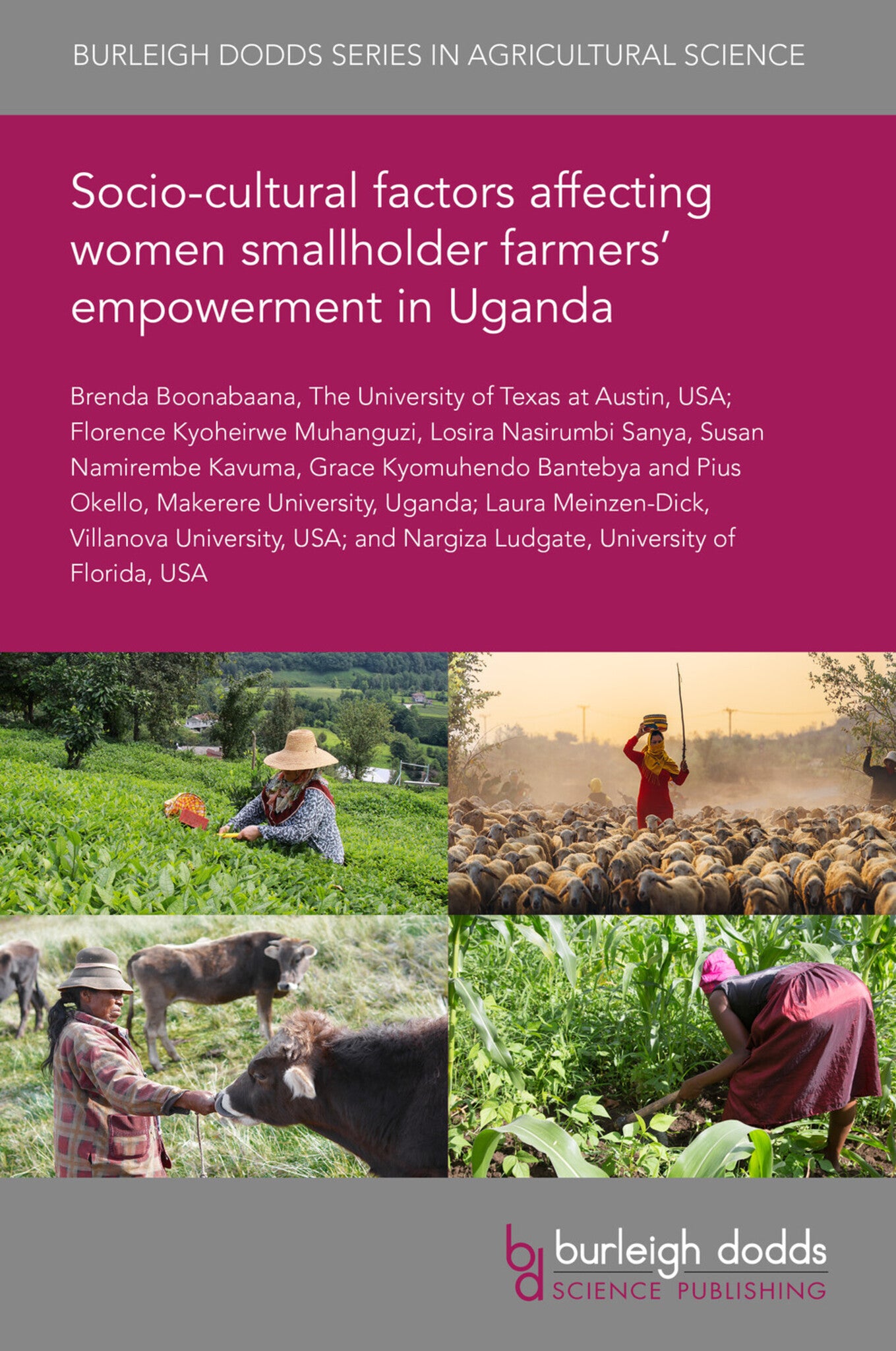We're sorry. An error has occurred
Please cancel or retry.
Socio-cultural factors affecting women smallholder farmers’ empowerment in Uganda

Some error occured while loading the Quick View. Please close the Quick View and try reloading the page.
Couldn't load pickup availability
- Format:
-
15 November 2024

Promoting women’s empowerment and gender equality plays a key role in accelerating equitable and sustainable agricultural systems in Africa, yet efforts to better integrate women in agricultural development often ignore the underlying social-economic drivers that underpin gender inequalities. This chapter uses primary data generated through the mixed methods approach, and the project-specific Women Empowerment in Agriculture Index (pro-WEAI). It also utilises rich secondary evidence from the region. Complex interconnections between women empowerment, social-cultural dynamics and agricultural opportunities in Uganda and Africa are also explored. Findings depict that the major disempowering drivers for rural women small holder farmers are more aligned to instrumental and intrinsic agency driven by social-cultural gendered power relations. The authors conclude that social and gender norms, rooted in the capitalist-patriarchal system limit women’s agency and agricultural opportunities. They recommend a gender responsive agricultural policy environment grounded in a transformative agenda that addresses the underlying gender inequalities.

TECHNOLOGY & ENGINEERING / Agriculture / Sustainable Agriculture, Smallholdings, TECHNOLOGY & ENGINEERING / Agriculture / Agronomy / Crop Science, TECHNOLOGY & ENGINEERING / Agriculture / Animal Husbandry, Sustainable agriculture, Animal husbandry, Agronomy and crop production

- 1 Introduction
- 2 Methodology
- 3 Findings
- 4 Social-cultural gender dynamics and womensempowerment: implications for gender-equitableagriculture in Uganda and beyond
- 5 Conclusion and recommendations
- 6 Acknowledgement and disclaimer statement
- 7 Where to look for further information
- 8 References



